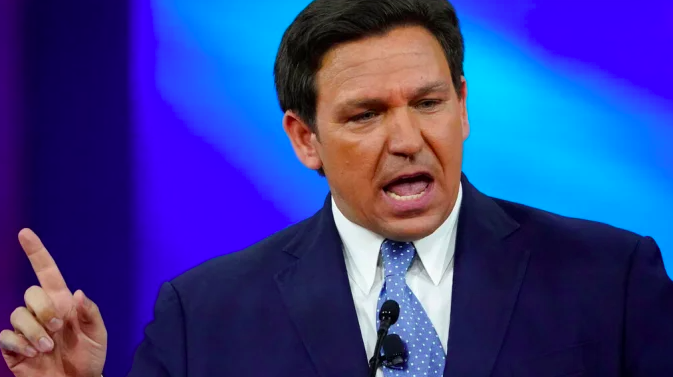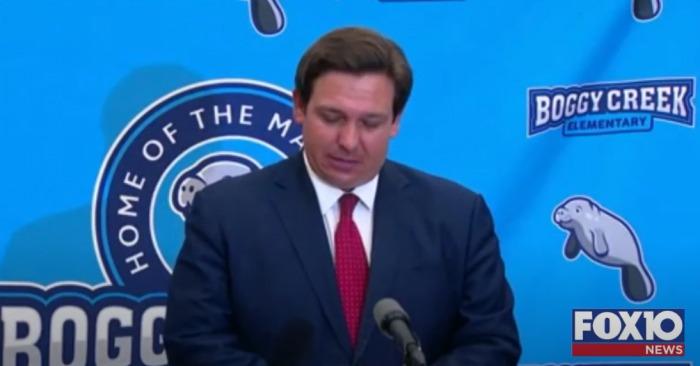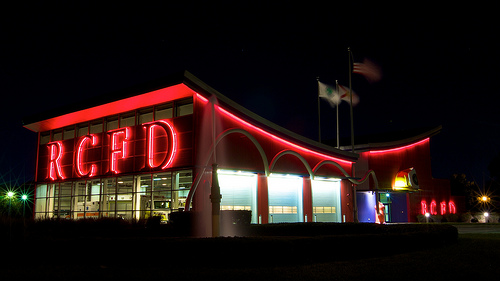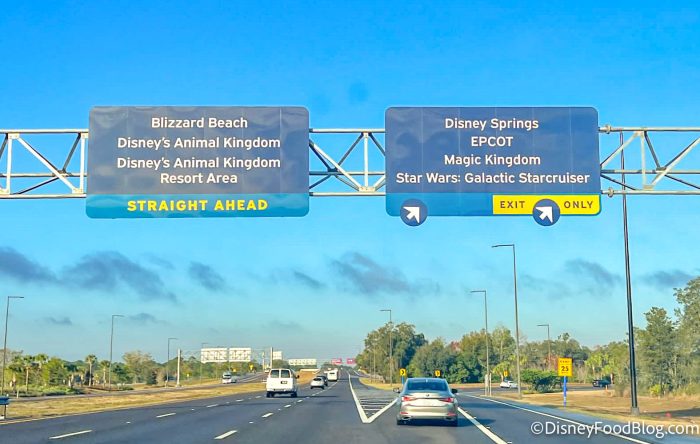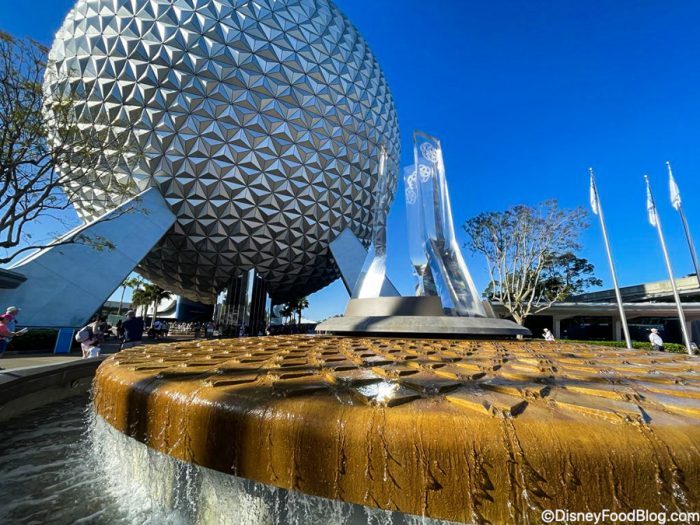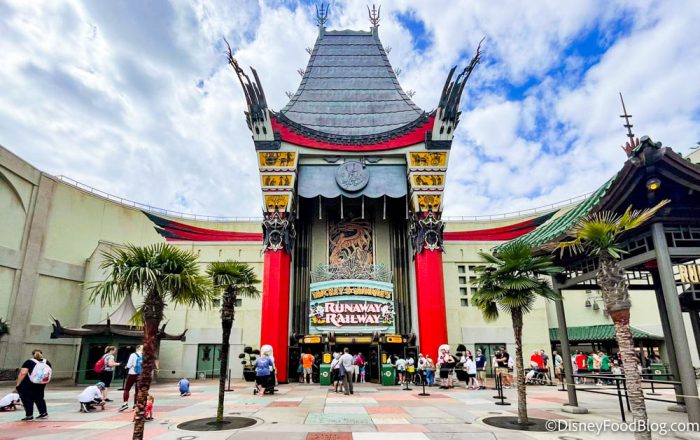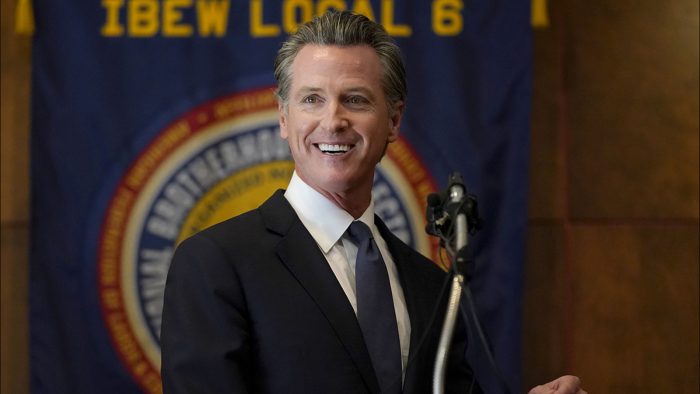There could be MAJOR changes on the horizon for Disney…or, at least, some major changes are being threatened.
Florida’s Parental Rights in Education Bill (what critics call the “Don’t Say Gay” bill) has spurred a lot of discussion. We’ve seen Disney make a number of responses to the Bill — most recently, issuing a statement in response to the Bill’s passage into law, which Florida’s Governor then issued a response to. Now, it seems all of this talk has generated interest in Disney’s operations in the state and a KEY aspect of how they do things in Florida could be at risk.
What’s Happening?
Recently, we shared that Spencer Roach, a Republican Representative in Florida’s House of Representatives (representing District 79) posted a message on Twitter about Disney, Florida’s “Don’t Say Gay” bill, and future actions that appear to be in discussion.
According to Representative Roach’s Twitter post, some Florida legislators have met twice in one week to talk about potentially repealing the 1967 Reedy Creek Improvement Act (the “Act”), an act that “allows Disney to act as its own government.”
In the Tweet, Roach said, “If Disney wants to embrace woke ideology, it seems fitting that they should be regulated by Orange County.”
Yesterday was the 2nd meeting in a week w/fellow legislators to discuss a repeal of the 1967 Reedy Creek Improvement Act, which allows Disney to act as its own government. If Disney wants to embrace woke ideology, it seems fitting that they should be regulated by Orange County. pic.twitter.com/6sj29Gj6Wz
— SpencerRoach (@SpencerRoachFL) March 30, 2022
Instead, the Governor said that the repeal of the Act could form just a part of a larger effort to strip Disney of what DeSantis calls “special privileges” in the State.
DeSantis stated, “I would not say that that’d be retaliatory. I mean, the way I view it is, you know, there are certain entities that have exerted a lot of influence through corporate means to generate special privileges in the law…I don’t think we should have special privileges in the law at all.” (Click Orlando)
In a news conference, DeSantis also discussed Disney’s influence in the state and an instance where an exception to a certain law was carved out for the Company, according to DeSantis.
DeSantis shared, “I think that’s one of the reasons they’ve got so far over their skis on this on this parental rights stuff, because I think they’re used to having their way and they’re not used to having people that will stand in their way and say, ‘Actually, the state of Florida is going to be governed by the best interest of the people in Florida’…You know, we’re certainly not going to bend a knee to woke executives in California. That is not the way the state’s going to be run.”
So it seems legislators AND the Governor have now discussed the possibility of repealing the Act, but just what is the Act, what does it do, and how could it impact Disney?
What is the Reedy Creek Improvement District?
We’ve covered the Reedy Creek Improvement District (the “RCID”) in previous articles, but we’ll go over some of the key things here. Our friends over at AllEars have a great post on this subject from Disney historian Jim Korkis that we’ve used for reference.
The Basics
Basically, back in 1967 the legislature and then-governor of Florida created and signed the Reedy Creek Improvement Act, which created the RCID. As the RCID website notes, it is a “special taxing district” that can “act with the same authority and responsibility as a county government.” The governor at the time also signed acts that formed 2 incorporated cities within the RCID — Bay Lake and Reedy Creek (Reedy Creek later got renamed to the City of Lake Buena Vista).
RCID is a “multi-purpose district that provides essential public services, regulates building codes, land use and environmental protections, and tries to provide direction for the efficient operation of Walt Disney World property.” (AllEars)
Basically, improvement districts (like the RCID) act as their own political subdivisions. The RCID acts through the decisions of its own Board of Directors, which is composed of property owners. The RCID can make decisions on a whole BUNCH of topics including the imposition of taxes, the adoption of ordinances, contracting for professional services, handling pest control, and more.
The Reedy Creek website says that the District is responsible for overseeing land use and environmental protection, providing essential public services (like fire protection), regulating the EPCOT Building Code, and operating and maintaining all public roadways within the District. In other words, the RCID basically has jurisdiction over Disney World property, so it essentially functions like its own separate county.
How it Helps the Local Counties
Why was/is this good for Florida and the counties near Disney World? Well, as the RCID website says, because of the creation of this new district, “landowners within the Reedy Creek Improvement District, primarily Walt Disney World, [are] solely responsible for paying the cost of providing typical municipal services like power, water, roads, fire protection etc.”
The residents of Orange and Osceola County get a benefit by not having to pay for to build or maintain those services.
Why Has It Been Beneficial for Disney?
The RCID is crucial to how Disney operates its land and theme parks in Florida. Disney owns the land that is under the RCID’s control. Remember that Board of Directors we talked about earlier? That is formed by landowners. But how can that be if Disney owns the land? Well, to handle this issue, Disney actually sells blocks of undeveloped land to the supervisors who sit on the Board. The supervisors then have to sell the land back to Disney when their terms are done. (AllEars)
The Board of supervisors are elected by the landowners. Disney owns the land. Votes are proportional to land ownership. Get the idea? Basically, the way that the RCID is designed and operates allows for Disney to essentially govern its own property. (AllEars)
Since Disney can essentially govern its own land, they have a tremendous amount of freedom and power over making decisions about things within the District. According to historian Jim Korkis, “If it wanted to, the district could build its own airport or nuclear power plant.” (AllEars)
As the Orlando Sentinel notes, the RCID is “able to sell tax-exempt bonds, write building codes, condemn property, develop and maintain its own infrastructure and offer fire and emergency services. It can levy taxes. And it can build whatever it wants — whether a theme park or an airport — most of it without the typical local oversight that encumbers regular developers.”
The creation of the RCID and the level of freedom it provided Disney has led to a number of achievements that essentially wouldn’t have been possible otherwise. Here’s just a few:
- The establishment of the “EPCOT Building Codes” — These building codes “are based on a philosophy that encourages new methods in design, construction and materials.” These led to a whole bunch of imaginative ideas like “a fiberglass castle and an 18-story geosphere,” while still ensuring the safety of the public (AllEars)
- The fact that Cinderella castle was able to be built out of fiberglass — “A sophisticated system of sprinklers, computer-controlled smoke detectors, and flame retardants made possible the 189-foot-tall Cinderella Castle that used more fiberglass than any other single structure up to its construction in 1971.” (AllEars)
- The establishment of Disney World’s unique trash system — “The first installation in the United States of the Swedish-built Automated Vacuum Assisted Collection (AVAC) was for the Magic Kingdom. This unique method of waste collection allows refuse to be deposited at 17 collection points around the park. Every 15 minutes it is drawn through 24-inch pneumatic tubes, at speeds up to 60 miles an hour to a central compactor station at the back of Splash Mountain and then trucked out to waste management.” (AllEars)
As political analyst Jim Clark said, in effect Disney is its own city, “They can zone the way they want. They can do things the way they want.” (Click Orlando)
What Happens if the RCID Goes Away?
For over 50 years, Disney has operated as its own little county, with the freedom to do what it wants when it wants and how it wants (essentially). So what happens if the RCID goes away? Well, everything would be DRAMATICALLY different for Disney in terms of how it operates.
Essentially, Disney would stop being its own little city. Instead of being able to make its own decisions regarding zoning, essential public services, environmental protections, land use, public roadways, etc., Disney would have to turn to the local county governments it would fall under (Orange County and Osceola County) for approval and authorization.
Political analyst Jim Clark said that the repeal would “be a disaster for Disney. One of the reasons they came here in the mid-60s was the legislature’s promise that they could have self-government.” (Click Orlando)
Instead of turning to its own Board of Directors, made of those who were voted into place by the landowners (that’s Disney), Disney would be at the mercy (so to speak) of local government leaders, some of whom might not always be in agreement with what Disney seeks to do. This means Disney could face significant pushback when it comes to decisions it wants to make about the many things that it previously had the ultimate freedom to determine.
Disney would also have to follow whatever layers of bureaucratic requirements, “red tape,” and approval requirements the counties might have in place, as opposed to simply following whatever requirements it has set up on its own. In essence, Disney would lose a large amount of control over the decision-making process for various projects and aspects related to the operation of Disney World.
This massive change could result in complications and greatly slow down Disney’s ability to “move” on a number of projects it may have previously been able to get approved by its own Board very quickly.
Another wrinkle could also cause more complications. Disney World’s property is located partially in Orange County, Florida and partially in Osceola County, Florida. This means it would have to deal with 2 separate county governments depending on where a particular project falls on Disney World’s property. We’ve already seen how these differing counties can sometimes impact certain taxes paid by guests in Disney World, but now the effects would impact Disney’s operations at a more critical level.
We mentioned it briefly above, but zoning and land use are areas where Disney could face some big problems. Right now, the RCID can make all kinds of decisions related to these topics, but if the RCID were to end, that would fall of the appropriate counties. Essentially, Disney World would be stuck in a similar position to Disneyland.
Disneyland has not had the benefit of freedom and self-governance that Disney World has had. Right now, Disneyland is in the middle of taking the steps it needs to get the local approval necessary to change some of the government restrictions in place that stop them from using their land in certain ways (i.e. they might have land zoned for “hotel” use that they now want to use for mixed purposes — hotel AND entertainment).
Beyond a loss of control, the repeal of the Act (and destruction of the RCID) would mean that Disney would have to pay fees and taxes it doesn’t currently pay. For example, without the RCID, Disney would have to pay impact fees to Orange and Osceola counties. These are one-time payments that developers make to “offset the cost of public services like roads.” Under the RCID, Disney doesn’t have to pay impact fees. (Orlando Sentinel)
Thanks to the RCID, Disney is also “immune from a tax that other property owners pay to fund law enforcement.” Thanks to that exemption the RCID (and Disney) save millions in taxes each year. If the RCID ends, that would change. (Orlando Sentinel)
But, if the RCID ends, that could also have a BIG impact on the taxes for those counties that would then govern Disney — Orange County and Osceola County — and their residents. The Orlando Sentinel notes that because of the taxes that Disney pays to Reedy Creek, and the amounts that Disney and the Disney Vacation Club pay to cover the utilities for the District, “Central Florida taxpayers are not burdened with additional costs of maintaining our infrastructure.” This quote comes from a Disney spokesperson.
But, if the RCID goes away, this would presumably change.
Will It Actually Happen?
Of course, that’s unclear at this time, but there are reasons why some think this threat of repeal won’t be realized into true action.
For one, Disney creates thousands of jobs for Florida. In fact, it is the “largest single-site employer in Florida.” (Click Orlando) Thus, there is an incentive for Florida legislators to continue to provide things that are beneficial to Disney to encourage them to continue to expand and create new jobs for Florida residents. In fact, Disney is relocating a number of its California employees to Florida in a new hub at Lake Nona and this is expected to create over 2,000 jobs for the region (Orlando Sentinel).
Due to the situation with Florida’s “Don’t Say Gay” bill, California Governor Gavin Newsom has called out to Disney (via Twitter) and noted that they may want to reconsider moving those jobs back to California, a state that “actually represents the values of your workers.”
Richard Foglesong, a retired professor of Political Science from Rollins College said, he thinks no true change will come out of these discussions. “If you ask me whether it’s politically possible to take these privileges away from the Disney company, I don’t think so,” Foglesong said. Foglesong noted, “I think that cooler minds will prevail and that this is really a shot across the bow to try to bring the Disney company, Mickey Mouse if you will, into line with Governor DeSantis.” (Click Orlando)
Others in the Florida Legislature have shared their doubts that the possibility for a repeal of the Act would get anywhere. Senator Linda Stewart, a Democratic Senator in the Florida Senate (representing District 13, which consists of part of Orange County), has said “I don’t see how in the world he’s going to be able to dismantle it…It would never get through the Senate and it’s unlikely to get through the House.” (WFTV 9 ABC)
Former Republican State Representative Bobby Olszewski echoed this statement saying “This seems like saber rattling in order to draw some headlines…I can tell you they [meaning Disney] have done a lot for our state and for our local community, so it is surprising that this is something that is coming up right now.” (WFTV 9 ABC)
Representative Roach’s Tweet only indicates that meetings have been held with certain representatives on this topic, nothing more. Further formal action would need to be taken to actually repeal the Act that created the RCID, and those actions would take time. WFTV 9 ABC shares that the Florida legislature is out of session at the moment, and no bill has been filed that would dissolve the RCID or otherwise target tax breaks Disney has received over the past years.
According to KION 5/46, lawmakers “would not be able to repeal the act until they meet again next year, unless DeSantis or legislative leaders convene a special session to address it.”
This is a developing situation, we’ll keep an eye out for more updates.
Click here to read about when Disney fought the law and won
Join the DFB Newsletter to get all the breaking news right in your inbox! Click here to Subscribe!
The post The Single Change That Could Equal “Disaster” for Disney World first appeared on the disney food blog.



